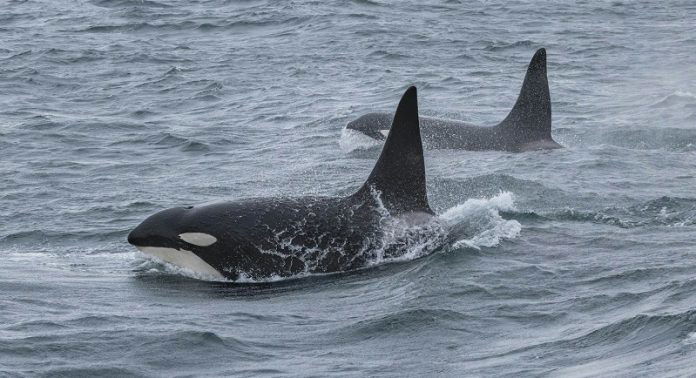
Orcas, also known as killer whales, are famous for being smart, social, and skilled hunters.
But new research suggests they may also be surprisingly generous—sometimes even offering their food to humans.
In a recent study published in the Journal of Comparative Psychology, scientists from Canada, New Zealand, and Mexico reported on 34 cases over the past 20 years where wild orcas appeared to give food to people.
These encounters happened in oceans around the world, including off the coasts of California, Norway, New Zealand, and Patagonia.
Lead researcher Jared Towers of Bay Cetology in British Columbia explained that orcas often share food with each other as a way of bonding and strengthening social ties.
The fact that they sometimes do the same with humans could suggest they are curious about us or even trying to build a kind of relationship.
In the study, researchers gathered stories and evidence—photos, videos, and eyewitness accounts—of times when orcas brought prey, like fish or stingrays, to people. In 11 cases, the people were in the water when the orcas approached.
In 21 cases, they were on boats, and in two instances, they were on the shore.
To make sure the interactions were truly orca-initiated, each case had to meet strict criteria: the whale had to approach the human without being closely followed or approached first and drop the prey in front of them.
In nearly every case, the orca waited around after dropping the food, as if to see what the person would do. In seven situations, when the human didn’t accept the offering, the whale made another attempt.
This kind of behavior is often seen in domesticated animals like cats and dogs—such as a cat dropping a bird at your feet—but it’s extremely rare in wild animals, especially marine mammals.
The researchers believe that this generous behavior may serve several purposes for the orcas. It could be a form of play, a way to learn more about humans, or simply part of their natural food-sharing habits.
Orcas are known for their intelligence, close family bonds, and ability to learn from one another. They even have cultural behaviors that vary between pods, much like human traditions.
Because orcas often hunt large prey and sometimes end up with extra food, they may be more inclined to share. Offering food might be a way for them to experiment socially or even connect with humans in a meaningful way.
The researchers say that this behavior shows just how complex and curious orcas really are—and how much we still have to learn about our relationship with the natural world.
Source: KSR.



